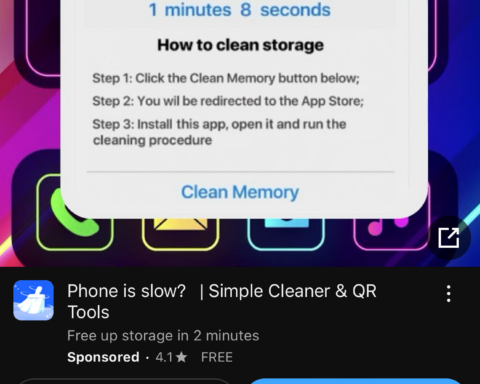OPINION
by Sheila Velazquez
I’m sure you’ve noticed that if you search on socks and kitchen gadgets, subsequent ads that appear on your screen are for … socks and kitchen gadgets. If you made the mistake of looking at sex toys because you have always wondered how many types are available, well, you soon found out.
I got tired of seeing these manipulated ads, but I thought I couldn’t avoid them. My fix was to search on flowers, clouds, puppies and kittens, pleasant and soothing things that then filled my screen. Yes, I beat them at their own game. Sort of.
I just finished reading Edward Snowden’s Permanent Record. Snowden recounts his life from childhood, writing of his family, relationships, illness (epilepsy), and, of course, his role in the surveillance of people around the world by countries around the world, particularly ours.
Back in the pre-World Wide Web Wild West days, a kid like him could rise to the highest ranks of the Central Intelligence Agency (CIA) and National Security Administration (NSA) with a GED. I remember those days because I was a beta tester for Prodigy when, unless you knew how to use MS-DOS, you were faced with a blank monitor.
My computer club in West Hartford was chosen, along with the one in Atlanta and one on the West coast — I believe San Francisco — because these clubs had enough members who had sunk small fortunes into PCs with enough power to handle the software. Over the next few years I met young nerds, grad students, and others, who warned that our online activity was being tracked. It sounded kind of woo-woo to me. I didn’t really get it then, but as time passed, I realized that they were correct.
Snowden’s career took him from a moldy motel to very highly paid positions around the world, expanding his income, knowledge, influence and understanding of the activities being performed by his employers, including Dell for its employers, the CIA (Central Intelligence Agency) and NSA (National Security Agency).
Back to that cloud. Snowden was one of the developers of the system that became necessary when the amount of data being stored became overwhelming. Snowden writes that the information you have agreed to store there is now owned by them to do with as they will. And unless you have backed it up, it could disappear without a trace. Don’t throw away those thumb drives. The cloud isn’t actually up there with the seraphim and cherubim. It is physical servers, like the mainframes of old, owned by companies that hold (and use) your data for incredible profit.
Snowden compares your data to a spreadsheet containing, “all the secrets, big and small that could end your marriage, end your career, poison even your closest relationships, and leave you broke, friendless, and in prison.”
Amazon, Facebook, and Google own nearly all of the e-commerce sites, social media, and email platforms upon which we live our digital lives. They can sell information to companies that want you to buy their products and services and personalize the ads you see, like the household doodads and dildos that pop up on your screen. Snowden tells us that they can also make it available to the government, but that hackers like him can get it for their agencies for free.
Snowden writes that “Ultimately, saying that you don’t care about privacy because you have nothing to hide is no different than saying you don’t care about freedom of speech because you have nothing to say. Or that you don’t care about freedom of the press because you don’t like to read.”
He further discusses physical surveillance cameras. These were originally intended as a crime deterrent and to provide evidence after a crime had been committed. As the costs of these devices has fallen, they have been placed everywhere, keeping track of people who have never, and likely will never, commit any crime. For example, every mile you drive may be documented, even if you never exceed the speed limit.
Snowden writes that the growing danger is that with artificial intelligence (AI) facial and pattern capabilities, they “would be no mere recording device, but could be made into something closer to an automated police officer—a true robo-cop actively seeking out ‘suspicious’ activity, such as apparent drug deals (that is, people embracing or shaking hands) and apparent gang affiliation (such as people wearing specific colors and brands of clothing).”
So many gadgets, so many ways they can be abused. It isn’t just your laptop or phone. How about your “virtual assistants,” the GPS in your car, the Echo Dot in your bedroom or the “Smart” refrigerator in the kitchen? The monetization of your data is extremely profitable. In many cases your information is worth more than the product that is transmitting it.
On your devices there is no such thing as “delete.” Even encryption no longer blocks prying eyes. As Snowden notes, the only way to keep your encryption keys safe is to use “zero knowledge,” a system whereby your information is encrypted on your system before it goes to the cloud. Your information is safely shared because your encryption key isn’t.
The book reveals that the federal toolbox allows snoopers, merely by typing in your name, address, IP address, telephone number, etc., to view your emails, browser history, search history, social media posts, everything. In the United States, or anywhere in the world.
Snowden’s precise explanations will fascinate techies but also regular folks like you and me. If you read his book, you will finally understand the meaning of your metadata and how it and more is extracted in violation of the Constitution.
Snowden notes that the whistle-blower law’s history dates back to 1778, and declares that it is “the duty of all persons in the service of the United States, as well as all other inhabitants thereof, to give the earliest information to Congress or any other proper authority of any misconduct, frauds, or misdemeanors committed by any officer or persons in the service of these states, which may come to their knowledge.” It came about after officers serving under Esek Hopkins, commander of the Continental Navy, petitioned against him for his refusal to enter combat and for starving and beating British prisoners of war.
He writes, “The constitutional system only functions as a whole if and when each of its three branches works as intended. When all three don’t just fail, but fail deliberately and with coordination, the result is a culture of impunity.” And that, dear friends is where we find ourselves today. We need to think long and hard about how we got where we are and how to pull ourselves, as a nation, out of the abyss.
Twenty-nine-year-old Snowden, with principled members of the Fourth Estate, like Glenn Greenwald, Ewen MacAskill, and documentarian Laura Poitras, brought his findings to light. Snowden is a patriot. He traded freedom for truth and is paying for it. He writes that while being cared for by strangers in Hong Kong, his life and those of the people he loved were put at risk. He was charged under the Espionage Act and forced to leave Hong Kong. Rafael Correa, the Democratic Socialist leader of Ecuador, offered him refuge, and Sarah Harrison, a journalist and editor with WikiLeaks, traveled with him on the dangerous route that would take them to Quito, Ecuador via Moscow, Havana, and Caracas. Except it didn’t. He writes that his U.S. passport was nullified by the State Department, so that he was never able to leave Moscow. He says that he applied to dozens of countries for asylum, but none were willing and that he was sued by the Department of Justice on the release of Permanent Record.
Permanent Record is a fascinating, and frightening, book. If you are on the nerdy side, you will love it, but it is just as fascinating for the web of deceit that is exposed by one of the bravest whistle-blowers in history. Author John le Carré, real name David John Moore Cornwell, who worked for the UK’s M15 and M16, has nothing on Snowden when it comes to intrigue.
















